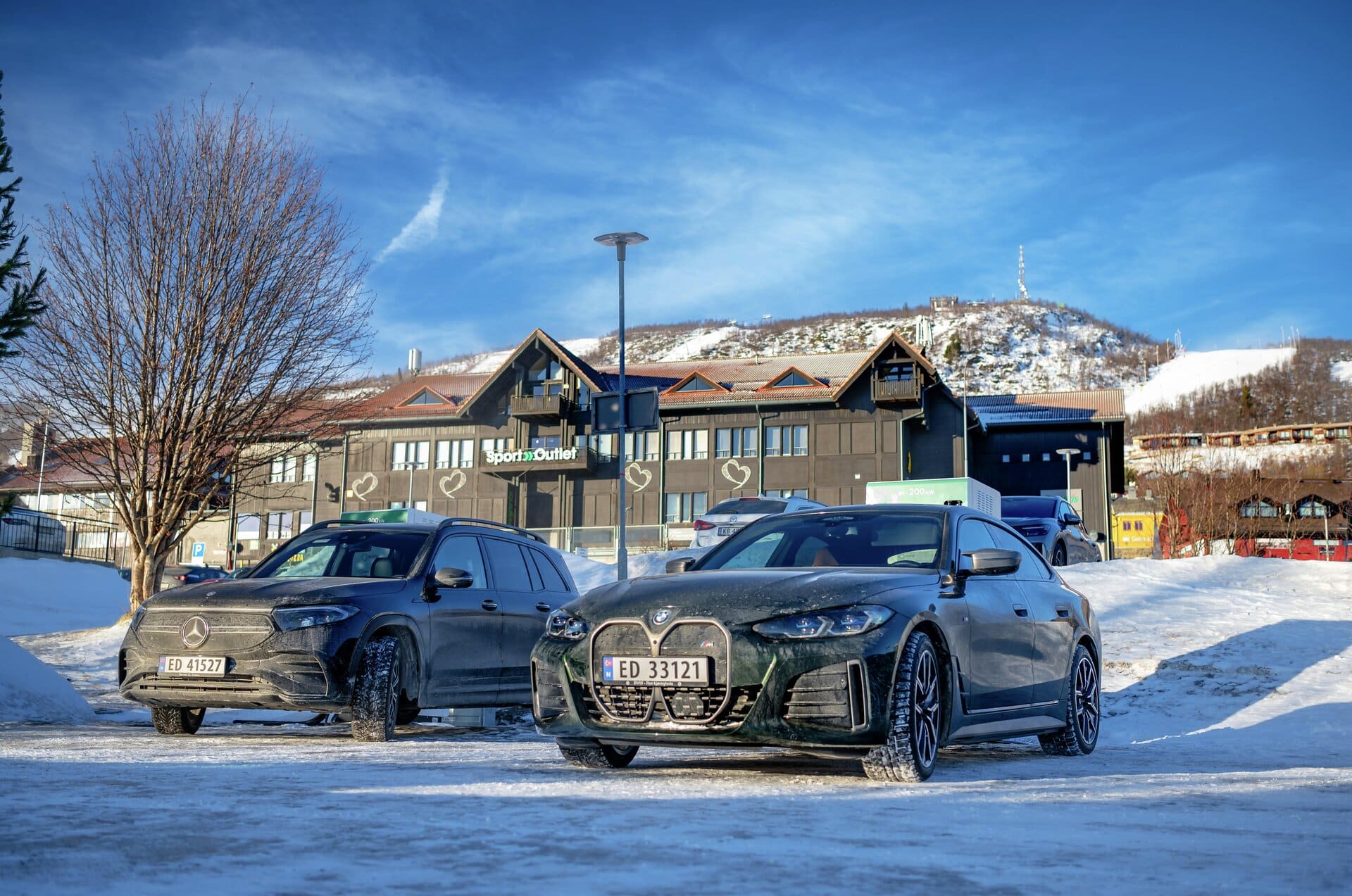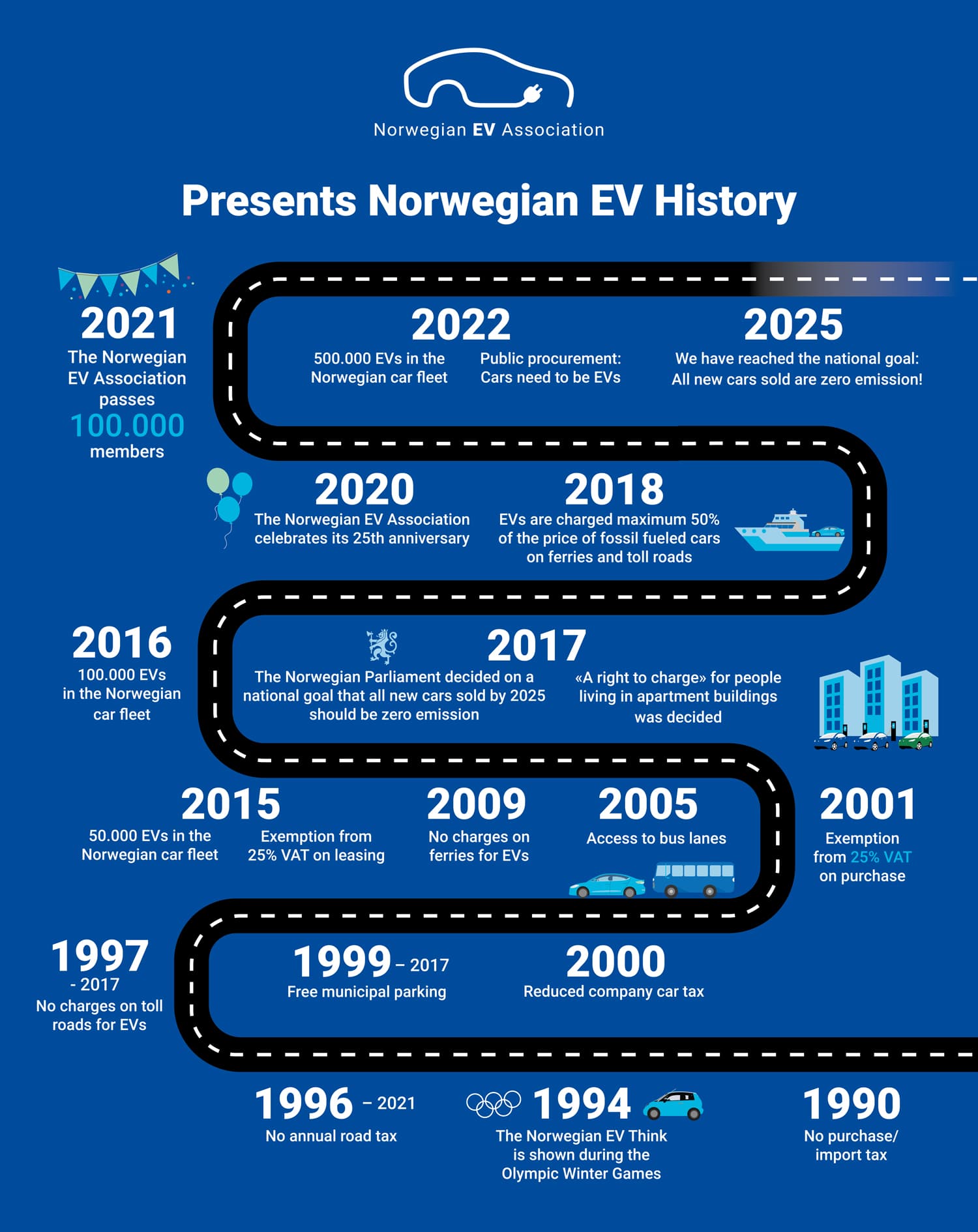Norwegian EV policy
Norway is leading the way for a transition to zero emission in transport.

The Norwegian success story is first and foremost due to a substantial package of incentives developed to promote zero-emission vehicles into the market. The incentives have been gradually introduced by different governments and broad coalitions of parties since the early 1990s to speed up the transition.
2025: Zero emission goal
The Norwegian Parliament has decided on a national goal that all new cars sold by 2025 should be zero-emission (electric or hydrogen). By end of 2022, more than 20 percent of registered cars in Norway were battery electric (BEV). Battery electric vehicles held a 79.2 percent market share in 2022. The speed of the transition is closely related to policy instruments and a wide range of incentives.
The Norwegian car tax system
The overall signal from the majority of political parties is that it should always be economically beneficial to choose zero and low emission cars over high emission cars. This is obtained with «the polluter pays principle» in the car tax system. High taxes for high emission cars and lower taxes for low and zero-emission cars. For a long time taxes on polluting cars have partly financed incentives for zero-emission cars without any loss in revenues.
The purchase tax for all new cars with emissions is calculated by a combination of weight, CO2 and NOx emissions. The tax is progressive, making big cars with high emissions very expensive. For the last years, the purchase tax has been adjusted gradually to have more emphasis on emissions and less on weight.
For a long time EVs have had exemption from both VAT and Norways high purchase tax on new cars. As of January 1, the 25 percent VAT exemption on the purchase of new electric vehicles applies only to the first 500,000 Norwegian kroner of the price. From 2023 some purchase tax based on the electric cars’ weight is also introduced.
Other incentives
The Parliament has agreed on a national rule which means that counties and municipalities can not charge more than 70% of the price for fossil fuel cars on toll roads. Within the rule there are local differences.
EVs pay maximum 50% of the total amount on ferry fares for electric vehicles
Charging infrastructure
Between 2017 and 2021 legislation establishing «charging right» for people living in apartment building was introduced.
Even if EV owners are charging at home and manage without fast charging daily, they think it is essential to have the option to fast charge when needed.
For longer distance trips, a well-organized charging network has to be in place. There has successfully been established fast charging stations on all main roads in Norway. As of end of 2022, we have more than 5.600 cars that can fast-charge at the same time.
Consumers are willing to pay a higher price for the service of fast charging. On average three times more than they pay for electricity at home.
The Norwegian EV incentives:
- No purchase/import tax on EVs (1990-2022). From 2023 some purchase tax based on the cars’ weight on all new EVs.
- Exemption from 25% VAT on purchase (2001-2022). From 2023, Norway will implement a 25% VAT on the purchase price from 500 000 Norwegian Kroner and over
- No annual road tax (1996-2021). Reduced tax from 2021. Full tax from 2022.
- No charges on toll roads (1997- 2017).
- No charges on ferries (2009- 2017).
- Maximum 50% of the total amount on ferry fares for electric vehicles (2018)
- Maximum 50% of the total amount on toll roads (2018-2022). From 2023 70%
- Free municipal parking (1999- 2017)
- Access to bus lanes (2005-). New rules allow local authorities to limit the access to only include EVs that carry one or more passengers (2016-)
- 25% reduced company car tax (2000-2008). 50% reduced company car tax (2009-2017). Company car tax reduction reduced to 40% (2018-2021) and 20 percent from 2022.
- Exemption from 25% VAT on leasing (2015-)
- The Norwegian Parliament decided on a national goal that all new cars sold by 2025 should be zero-emission (electric or hydrogen) (2017).
- «Charging right» for people living in apartment buildings was established (2017-)
- Public procurement: From 2022 cars needs to be ZEV. From 2025 the same applies to city buses
